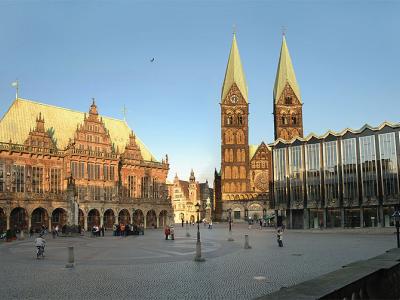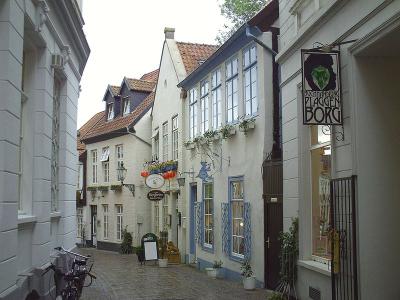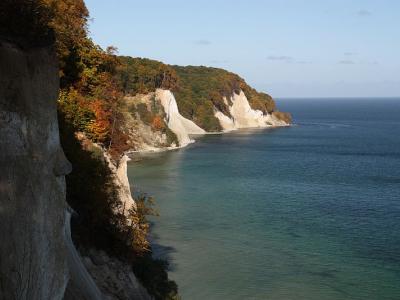The Free and Hanseatic City of Hamburg (Freie und Hansestadt Hamburg) is Germany's second-largest city and, at the same time, one of Germany's 16 federal states or Bundesländer. Prior to the formation of the modern German state, Hamburg for centuries enjoyed a status as de facto independent city state and regional power and trade hub in the North Sea. Although situated over 100 km (62 mi) upriver from the North Sea on the Elbe, Hamburg has been one of Europe's most important ports for centuries, as reflected in its full name referencing the Hanseatic League. The city was built upon a number of islands formed by the wide river and its larger and smaller tributaries, and a huge part of its southern half is occupied by the massive port.
With a tumultuous history preserved in more than just the ancient name, Hamburg grew to become one of Germany's most affluent cities, today hosting almost 1.8 million inhabitants and forming a metropolitan centre for many smaller cities and towns in neighbouring federal states. Its riverine location allows it to compete with Amsterdam or Venice with the number of canals, most of which (called "Fleet" or "Brook") are actually former small rivers and streams regulated to allow the sprawling city to expand over their banks. And on top of that, Hamburg has more bridges (over 2,300) than Amsterdam, Venice and London combined. There is plenty to enjoy in Hamburg, both in terms of views, culture and the general high standard of living Hamburg has come to be known for.



